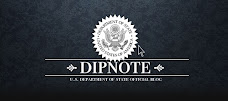The new French president will have his or her first international meeting at the NATO summit in Brussels on May 25, just weeks after taking office. After stating that NATO is no longer obsolete, 45 is expected to participate in this summit as well.
They would need to express their intentions regarding France’s future role in the alliance at this summit without any real preparation.
The second reality is French relations with the EU and Germany. Contrary to NATO, this reality is well known to the French public. The 1957 Treaty of Rome initiated reconciliation between France and Germany and was the cornerstone of the European project. However, the two countries do not see eye to eye because of their economic asymmetry, which has dramatically increased over the last decade.
In 2016, France’s trade deficit with Germany deepened to around 14 billion euros, its highest point in a decade. In view of France’s sluggish economic growth, it remains to be seen whether it really has a choice when it comes to breaking ties with the EU and Germany. In the past, strong political will on both sides served to gloss over the structural differences between Paris and Berlin. This political will is likely to be tested before summer.
The third reality is military spending. Like its European allies, France is facing a deteriorated strategic environment with diverse threats ranging from terrorism on its soil to coercive military strategies in regions including the Levant and the Sahel. To put it bluntly, if the financial resources devoted to defense are not significantly increased, France’s military model of strategic autonomy, which is at the core of its international positioning, will soon be at risk.
Le Pen has proposed increasing the defense budget to 2 percent of GDP by 2018, and closer to 3 percent by 2022. She has stated she intends to protect and maintain the two legs of France’s nuclear deterrent: submarines and aircraft. On the other side of the political spectrum, Mélenchon remains unclear on his preferred defense budget, only refusing to comply with NATO’s standard of 2 percent of GDP. However, he has said he intends to make cuts to funding for aircrafts.
There are of course other pressing foreign policy issues, which include sovereign debt, trade, energy and climate, digital autonomy, migration, as well as French policy toward Africa, Asia, and Russia. But everything starts in Europe. As a founder of the EU and a first-rate power able to exert influence outside Europe, France carries weight in European debates. If the next president chooses to transform France’s existing alliances without any credible alternative or real preparation, these will be huge risks in a context of global strategic instability. A realignment of this magnitude would weaken, and possibly destroy, the Western community and would mark a sharp break from de Gaulle’s legacy.















0 comments:
Post a Comment